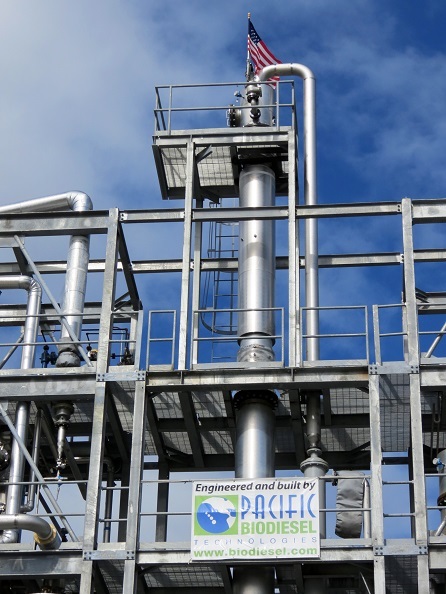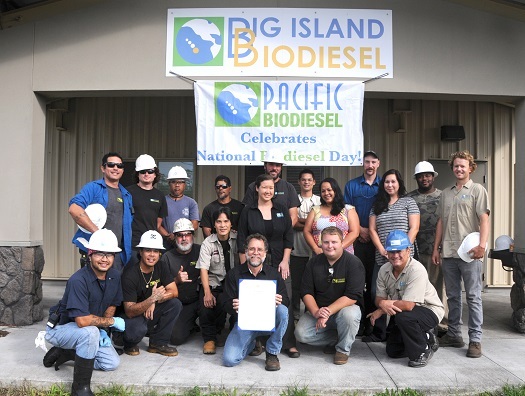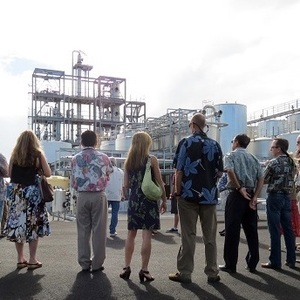Pacific Biodiesel Technologies, Big Island Biodiesel unite




Photo: Pacific Biodiesel Technologies
July 14, 2015
BY Pacific Biodiesel Technologies
In a unanimous vote, members of Pacific Biodiesel Technologies LLC and Big Island Biodiesel LLC decided to combine the companies, making BIB a wholly owned subsidiary of PBT as of July 1. The move unites all members in the company’s effort to expand biodiesel production in Hawaii and to continue to decrease the state’s dependency on imported fossil fuel.
Big Island Biodiesel, which began production in July 2012, is the most recent of 13 facilities designed by Pacific Biodiesel and features fuel distillation and zero-waste processing. Located on Hawaii Island, the facility has a current production capacity of 5.5 MMgy.
President of PBT Robert King noted that Pacific Biodiesel is celebrating its 20th anniversary this year. “The newest members now join the oldest and most experienced biodiesel business in America,” King said. “While it will be easier to run as one company, it is equally important to have BIB investors become part of the many projects Pacific Biodiesel is involved with. There is so much related activity, and all projects are integral to a sustainable future for our island community.”
Advertisement
Since opening and operating the very first retail biodiesel pump in America, Pacific Biodiesel has built a solid reputation as a leading pioneer in the rapidly expanding biodiesel industry. Founded in 1995, the Company has grown to more than 70 employees statewide and has won state, national and international awards for innovations in the industry. With experience in all aspects of the biodiesel business, including oil/grease trap pumping, biodiesel production, marketing and distribution, process technology design and engineering, quality management services, and feedstock R&D, PBT has industry-leading accomplishments no other U.S. company can claim. Pacific Biodiesel’s vision has remained constant: to create truly sustainable, community-based biodiesel production facilities in order to maximize the economic and environmental benefits and minimize energy consumption.
Advertisement
Related Stories
Neste and FedEx, the world’s largest express cargo airline, have agreed on the supply of 8,800 metric tons (more than 3 million gallons) of blended Neste MY Sustainable Aviation Fuel to FedEx at Los Angeles International Airport (LAX).
The U.S. EPA on May 14 delivered two RFS rulemakings to the White House OMB, beginning the interagency review process. One rule focuses on RFS RVOs and the other focuses on a partial waiver of the 2024 cellulosic RVO.
The U.S. EPA on May 15 released data showing nearly 1.79 billion RINs were generated under the RFS in April, down from 2.09 million generated during the same month of last year. Total RIN generation for the first four months of 2025 was 7.12 billion.
Calumet Inc. on May 9 announced sustainable aviation fuel (SAF) capacity at its Montana Renewables biorefinery is expected to reach 120 MMgy to 150 MMgy sooner than previously reported for a fraction of the originally expected cost.
Tidewater Renewables on May 8 announced that its 3,000-barrel-per-day renewable diesel plant in Prince George, British Columbia, operated at 75% capacity during the first quarter, up from 71% during the same period of last year.
Upcoming Events










